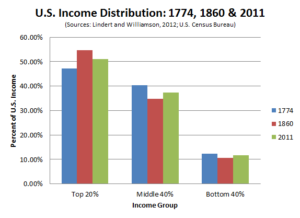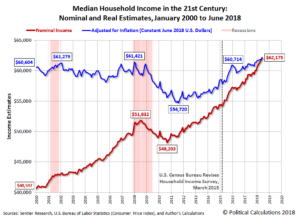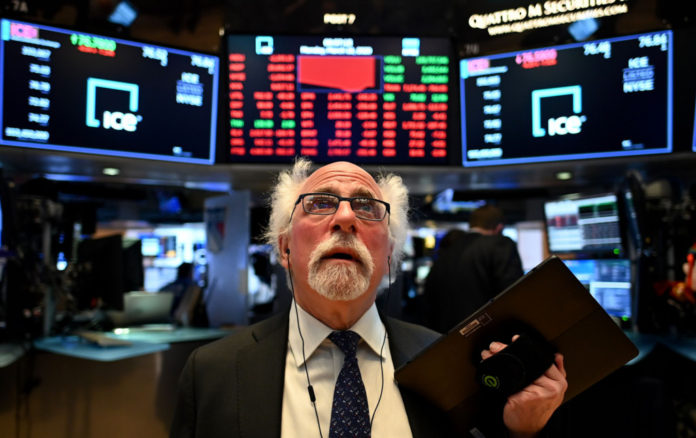Yes, we are in a PANDEMIC. My previous article on the coronavirus was inaccurate, as I did not predict the immense effects of the virus. In the US alone, there are over 35,000 cases and possibly more due to a lack of testing. The world is in disarray. Hospitals need supplies to operate and keep the disease from spreading. Honestly, no one knows when this will be over. We are currently in a huge turning point in American society.
While everyone may be focusing on self-quarantining and getting out of school, I would like to present how the coronavirus could affect not only the U.S. economy but also government intervention in the U.S. economy. Now, I am not an economist nor have I taken a class on Economics yet. I just want to provide some interesting statistics and viewpoints and make my own general conclusion.
How are businesses and their workers affected by COVID-19?
Businesses and workers have been heavily affected by the outbreak of coronavirus, especially small businesses and recently started businesses. Typically, everyone would be out buying goods such as groceries, clothing, and games, but the need for social distancing and quarantining to protect the most vulnerable has led to business slowing down. Restaurants, coffee shops, gymnasiums, etc. are closing down, and people often rely on these jobs for daily income. However, if nothing is happening, then people cannot earn enough money to pay bills and put food on the table. The majority of businesses have been hit hard, especially small businesses who heavily rely on individual consumption in the community for profit. While the effects are immense in the economy, the human lives saved are worth it. Even though Trump has asked for the economy to be back up “by Easter,” I don’t think that will happen.
However, businesses that have little need for contact, and thus virus spreading, such as Amazon have experienced growth. Also, Youtubers and Netflix produces have seen increased interest due to media entertainment being a common option to cure boredom. Finally, the rampant, almost absurd, purchasing of toilet paper and paper towels has somehow led to profit for these companies; I bet hand sanitizer companies probably are going through the roof right now.
While the vast majority of businesses shut down, what will the government do to help Americans? Before I present this, let me provide a quick history lesson on the government interfering in the economy:
A Brief History on Government Economic Intervention
For a long time, the U.S. government did not interfere in economic affairs, as throughout history, we practiced lassiez-faire economics, which encourages governments to stay away from the economy. This was due to Britain’s imperialist control of economic affairs back in colonial days, especially through acts like the Stamp Act and Navigation Acts. While Congress has the power to interstate trade through the Constitution, true capitalism remained as the predominant ideology here in the U.S until the Second Industrial Revolution.
As the U.S. began to industrialize in the Gilded Age, new technologies were emerging and companies began to earn bigger profits than ever before. As a result, national corporations such as U.S. Steel and Standard Oil Company formed, as wealthy company owners such as J.P. Morgan, Andrew Carnegie, and John Rockefeller became the first millionaires.

However, a greater wealth gap grew between the rich and poor, and the greedy planned to exploit prices to accumulate wealth through trusts, stock watering, and railroad pools. To protect the average consumer, the Progressive Era led to many antitrust reforms by presidents Wilson and Roosevelt, where the U.S. first began to interfere and regulate the economy.
Finally, after Franklin Roosevelt set up the New Deal to help workers affected by the Great Depression, Keynesian economics started to emerge as a more practical economic system. According to the International Monetary Fund, Keynesian economics advocates for “government spending on infrastructure, unemployment benefits, and education.” Government spending was necessary to relieve and reform both the society and the economy in the future. As a result, the U.S. can handle mass consumption today that contributed to the Great Depression almost 100 years ago. Yet, the economic gap has grown worse over time.
While these examples do not apply specifically to pandemics, they do apply in the face of changes in the economy and the coronavirus is certainly changing the economy’s operation.
How does the government plan to help salvage the economy in this time of crisis?
The Senate has been hotly contested this week, as congressmen are debating a bill to give checks to people put out of work due to quarantine. According to the Washington Post, “the Senate bill would direct payments of $1,200 to most American adults and $500 to most children, create a $500 billion lending program for companies, states, and cities, and extend an additional $367 billion to help small companies deal with payroll problems. It would bolster the unemployment insurance system and pump $150 billion into U.S. hospitals. The bill more than doubled in size in just a few days.”
However, it doesn’t necessarily fix all the problems on the surface. Minimum wage workers and those below the average income of roughly $60,000 per year may seem to struggle.

Additionally, big businesses such as Starbucks and have been asking for billion-dollar bailouts, so how are we going to solve that issue? It seems like these businesses should be fine, as they have vast economic resources to survive on. Yet, companies like Chick-Fil-A and United Airlines are beginning to struggle.
Are we expecting a major economic recession due to the coronavirus?
While the magnitude is influenced by the length and intensity of the coronavirus, I predict we do see a major economic recession if the government cannot get a hold of this. Furthermore, if we cannot hold the virus, the quarantining could get more restrictive, which means that more businesses will struggle to stay afloat. Even though the U.S. could have prepared for this months ago and thus prevent this strife, it doesn’t look good and life doesn’t look like it will go back to normal for a while now.
Stay tuned to The Roundup for more coverage of the coronavirus and its effects on society as we know it!






